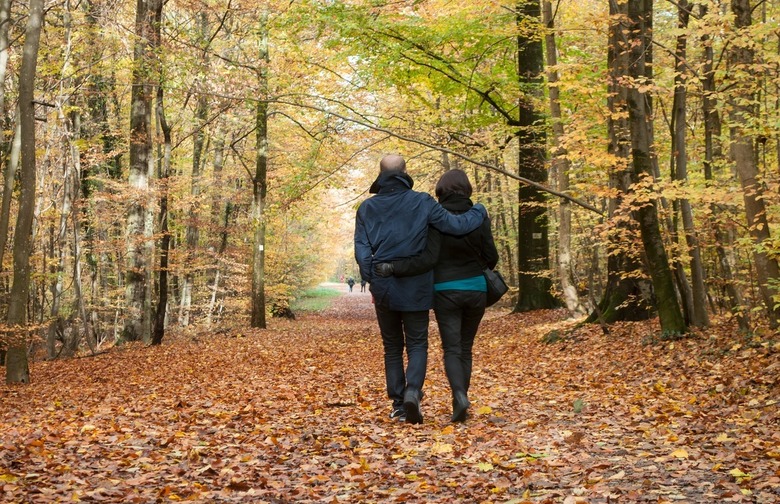The Year's Biggest Health Questions Answered Slideshow
Is Walking Comparable to Running?
Answer: Yes.
Any sort of physical exercise is beneficial for heart health, metabolic rate, and weight loss. Walking can be just as effective as running when it comes to lowering cholesterol levels and blood pressure and reducing the risk of a heart attack. However, if you're trying to lose weight, a good old-fashioned jog is still advisable.
Is Sitting for Too Long a Health Hazard?
Answer: Yes.
Humans were never meant to sit for long periods of time. We evolved to be upright and active, not slouched and sedentary. Studies have shown that continuous sitting can result in a number of different health complications ranging from obesity to increased blood pressure and risk of cardiovascular disease. A study from Annals of Internal Medicine found that sitting was associated with "deleterious health outcomes regardless of physical activity," meaning that a few hours at the gym can't reverse the effects.
Should I Take a Multivitamin?
Answer: Probably not.
The Food and Drug Administration regulates dietary supplements very loosely and doesn't guarantee the accuracy of health claims attached to them. Anyway, experts disagree regarding the effectiveness of multivitamins. Three published studies concluded that multivitamin and mineral supplements neither extended life spans nor warded off heart disease or memory loss any better than a placebo. The authors of these papers recommend not taking multivitamins because it's likely that they are causing more harm than good, but if you feel that your diet is not fulfilling certain nutrient requirements, talk to your doctor before taking a supplement.
Is There One Supplement I Should Consider Taking?
Answer: Yes.
Though there should be some skepticism when approaching dietary supplements, evidence says fish oil is the one to take. Fish oil contains two essential omega-3 fatty acids — eicosapentaenoic acid (EPA) and docosahexaenoic acid (DHA) — both of which help prevent the accumulation of belly fat. A study on mice from the University of São Paulo found that taking fish oil supplements actually reversed the negative health impacts of a high-fat diet.
Does Sugar Make Kids Hyper?
Answer: No.
The origins of this myth go back to the 1970s. Doctors believed sugar was a leading cause of hyperactivity, but a 1995 meta analysis of the impact of sugar on children's cognitive functioning and behavior showed that there was little correlation between them. Sugar won't make kids hyper, but eating too much of it will still give them cavities.
Is Sugar Worse Than Fat?
Answer: It's looking like it.
This past year was, without a doubt, a comeback year for fats. TIME magazine published a piece exonerating butter, calling it "better than sugar, but worse than olive oil," while The New York Times released an exposé explaining how in the 1960s, the sugar industry paid scientists to shift the blame for heart disease away from sugar and toward saturated fat. Currently, the American Heart Association warns that a diet high in added sugar can substantially increase a person's risk of dying from heart disease.
Can Diabetics Drink Alcohol?
Answer: Yes.
There's a misconception that diabetics should not consume alcohol, but the American Diabetes Association actually approves of diabetics having a drink or two. Alcohol in moderation won't lead to a dramatic spike in blood sugar levels, but the resulting intoxication might lead to neglect of critical self-care behaviors.
Which Wine Is Better for You: Red or White?
Answer: It's pretty much a tie.
An analysis of more than 30 studies documenting the health benefits of red wine concluded that though a minute amount of alcohol consumption (between one and two drinks per day) might contribute to heart health, there wasn't a noticeable difference between red and white wine. The major distinction between the two was that red wine had a lower sugar and higher mineral content than white.
Is It Possible to Drink Too Much Water?
Answer: Amazingly, yes.
Water should remain your preferred drink of choice; it can relieve fatigue, aid in weight loss, and also help with digestion. But drinking too many cups of water can actually dilute blood to the point where it no longer delivers your body the necessary minerals. For example, low levels of sodium caused by constant water guzzling can lead to hyponatremia, a condition that causes cells to swell with water and can cause mild to life-threatening health problems. The best way to avoid mineral dilution is too drink an electrolyte-fortified sports drink during intense workouts.
Can Olive Oil Prevent Heart Disease?
Answer: Yes.
The role of olive oil as one of the centerpieces of the Mediterranean diet has led researchers to further analyze its potential benefits. Olive oil is rich in polyunsaturated fats, which have been linked to lowering the risk of coronary artery disease and certain cancers.
Does Coffee Protect Against Cancer?
Answer: Maybe.
Some research says it can help. Two separate studies have found that coffee can lower the risk of developing prostate and liver cancer. Coffee's continuing growth in popularity has spurred other research into the health benefits of coffee, which now include boosting metabolism, relieving joint pain, increasing longevity, and reducing instances of diabetes.
More From The Daily Meal
Why Are Pretzels Shaped Like That? And 17 Other Food Mysteries, Solved
The Official State Dish of Texas and 35 Other Fun Food Facts
When Should You Buy Your Turkey? And Other Thanksgiving Questions, Answered











